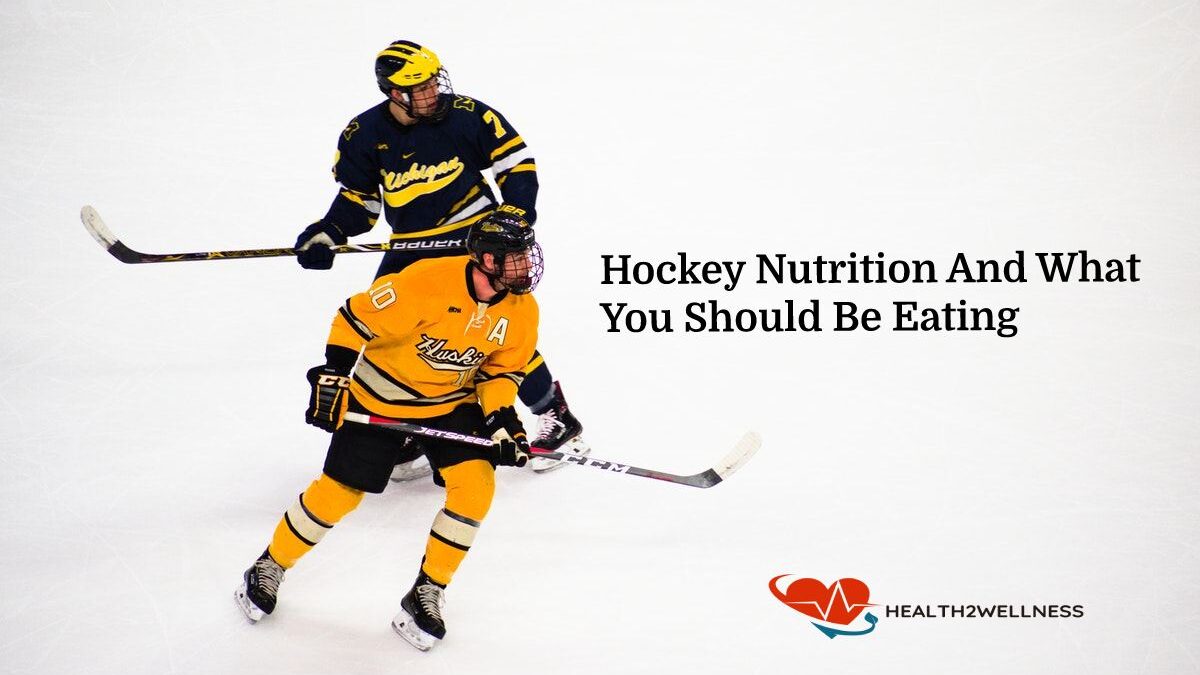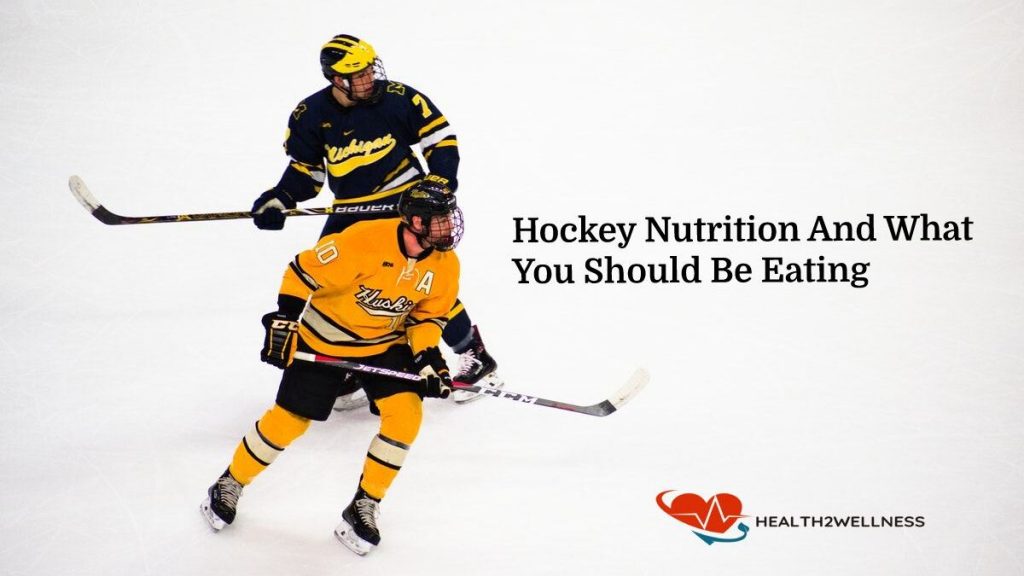
The professional hockey game is made up of three periods each 20 minutes long, two intermissions each 15 minutes and an overtime intermission lasting one minute. This is 2 hours of intense and sometimes aggressive physical activity. Ice hockey players have been trained to perform this kind of intense physical activity.
Physical training is not always enough to achieve optimum performance. The importance of nutrition is well-known to elite hockey players. They know that machines need high-performance fuel in order to perform at their best. If you want to be at the top, you cannot eat the same as everyone else. In the article below, you can read what you should eat.
Everyday Eating
What you eat can affect your performance. Just because there is no upcoming match or practice, nor any off-ice training does not mean that you can indulge in snacks, soda, and fries.
Focus on the proper nutrition during off-days, instead of eating what comes first. You will recover quicker and get the energy you need for your next training session or game. Here are the essential nutrients you need to fuel your body for the upcoming training session or match:
Carbohydrates
Carbohydrates are a mixture of sugars, dietary fibers, and starches. They are your main source of energy. Carbohydrates are essential for young hockey players who are active and developing physically. Fruits, vegetables, whole grain bread, milk and legumes are the best sources of carbohydrates.
Proteins
The building blocks of muscle, proteins are essential for building and repairing tissue. You can increase your workout effectiveness by eating one or two portions of protein at each meal. Lean meats and poultry, eggs, dairy products, fish, and dairy products are all rich in protein.
Fats
Trans fats, however, are the only fats that are harmful. No fried food. Omega-3 fatty acid and saturated and unsaturated dietary fats are good for your health, since they lower cholesterol and inflammation in the body.
Avocados, cheese, chocolate, whole eggs fatty fish nuts, chia seeds and other high-fat foods are healthy.
Enjoying Game Day Food
It’s like going to a math exam after studying biology all night. You’ll do well just because you’re there, but not very well. Take the right steps and give your engine the high-performance fuel that it deserves.
After a restful night, your body needs to replenish its fuel tank. Since you will be performing well on game day, it is a great idea to “pour” premium fuel. On game day, your main goal is to start your day off with a nutritious, balanced, and healthy breakfast. Focus on foods high in carbohydrates and proteins. Here are a few examples of a healthy breakfast for game day:
- Breakfast 1: One whole-grain bagel, peanut butter, banana and 1-2 cups milk
- Breakfast 2: 1 cup oatmeal with 1/2 cup of strawberries or blueberries and 1-2 cups milk
- Breakfast 3: 2 eggs omelet with two slices of whole wheat toast, an orange and 1-2 cups milk
Important Note: Milk can be substituted by fresh fruit juice, water or other sources of protein.
Pre-Game Meals: When and What to Eat?
A proper diet is crucial to winning or losing a pre-game. Pre-game meals are usually eaten by most athletes 3-4 hours before the game. This meal should include CHOs as fuel, and fluids to hydrate.
The following are some of the best pre-game foods:
- Sandwich with chicken salad
- Muesli bowl with yogurt, berries and berries
- Pasta with tomato sauce and beef mince
- Stir-fried chicken with rice or noodles
A light and carbohydrate-rich snack can be consumed 1-2 hours before the match. Fruit salads, bananas or peanut butter on rice cake are some of the snacks you can have.
Eat and drink during competition
During intermissions, you can replenish energy and rehydrate. You can add electrolytes and carbohydrates to your energy by adding a sports drink or electrolyte to the water.
When it comes to eating, eat only CHO-rich, light snacks that are easy to digest, like muesli, fresh fruit or flavored dairy. It is important to test your nutrition strategies while training or practicing.
After-Game Eating and Drinking
This day has its own rules. These rules include replenishment of glycogen in the muscles, recovery and rehydration. No matter what anyone says, it is important to consume a recovery food after exercising or playing a sport.
Foods that are high in carbohydrates will help replenish your glycogen levels. These snacks should be high in protein to help your body repair damaged muscle tissue. You should also drink plenty of electrolytes and fluids to replenish your body’s stores.
The conclusion of the article is:
No matter what others think, a proper diet is essential to achieve optimum performance. Plan your meals and snacks to suit your training needs, game days and recovery times.
For the best nutrition program and results, if you are new to ice hockey or hockey fitness please consult an Accredited Sports Nutritionist.
